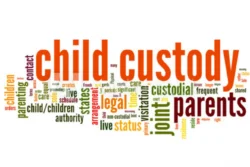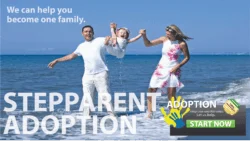
Press Release (ePRNews.com) - Toronto, CA - Sep 19, 2017 (UTC) - This article will discuss what supervised access is and the objectives as well as two types in which such supervised access.
At times after separation as a result of disagreements between the parents access to a children may be a problem. Such problems may arise between parents or between the parent and a relative, such as a grandparent, when it comes to exchanging the child. Therefore, the only available action is to have supervised access of the child. This article will discuss what supervised access is and the objectives as well as two types in which such supervised access.
Supervised access can be defined as having access to a child under the supervision of a third party where there is a concern for the child’s safety or well-being or concern about the parent not returning the child after access or abducting the child. The court can order that a parent’s access time with the child be supervised, therefore the child will not be alone with that parent. The neutral third-party providing supervision may be a part of the supervised access program. “The supervised access program offers a separated family a way to deal with exchange problems. Supervised access centers allow the appropriate setting when visits and exchanges can take place under the supervision of trained staff and volunteers.”
The basic objectives of supervised access is to:
Provide a safe, neutral and child focused setting for visits between a parent child and non-custodial parent or other family member
Ensure the safety of all participants including staff
Provide trained staff and volunteers who are sensitive to the needs of the child
Provide reports of factual observations about the participant’s use of the service.
Supervised access may be necessary in cases where there are concerns about the safety of the child and or the custodial parent, where the non-custodial parent has a drug or alcohol problem or a mental health problem, where there has been a lengthy separation between the parent of a child or where there is a risk of abduction.
In respect of supervised exchange, this is where there is an unresolved conflict between the parents and as a result there is need for a neutral place to exchange children for visits. By having this neutral place it makes access easier to arrange and reduce the tension created by the conflict, for the child. Supervised exchanges also are appropriate when it is necessary to determine if a parent visiting a child is under the influence of drugs or alcohol. However, in other cases the concern may be about the safety of the custodial parent during these exchanges. Therefore, the neutral places provide such safety.
When asked how a parent may apply for supervised access services, a lawyer from the Bluetown Law Firm stated that, “a parent may receive a referral to the program from lawyers, mediators, the courts, mental health professionals and other agencies. However, while a court order for supervised access is preferred it is not required. Therefore, if a parent does not have a court order, the parent must have some other signed written agreement.
For a simple divorce in Ontario seek out a law firm of renowned professionals to provide legal advice and representation. In respect of a simple divorce lawyer in Toronto seek out a law firm of professionals who specialize in family law.
About the company:
The Bluetown Law Firm is a law firm of renowned professionals who specialize in family law. If you need a family divorce lawyer in Toronto, the Bluetown Law Firm is a law firm of choice.
Source : Divorce Go




